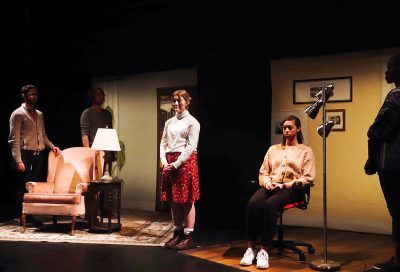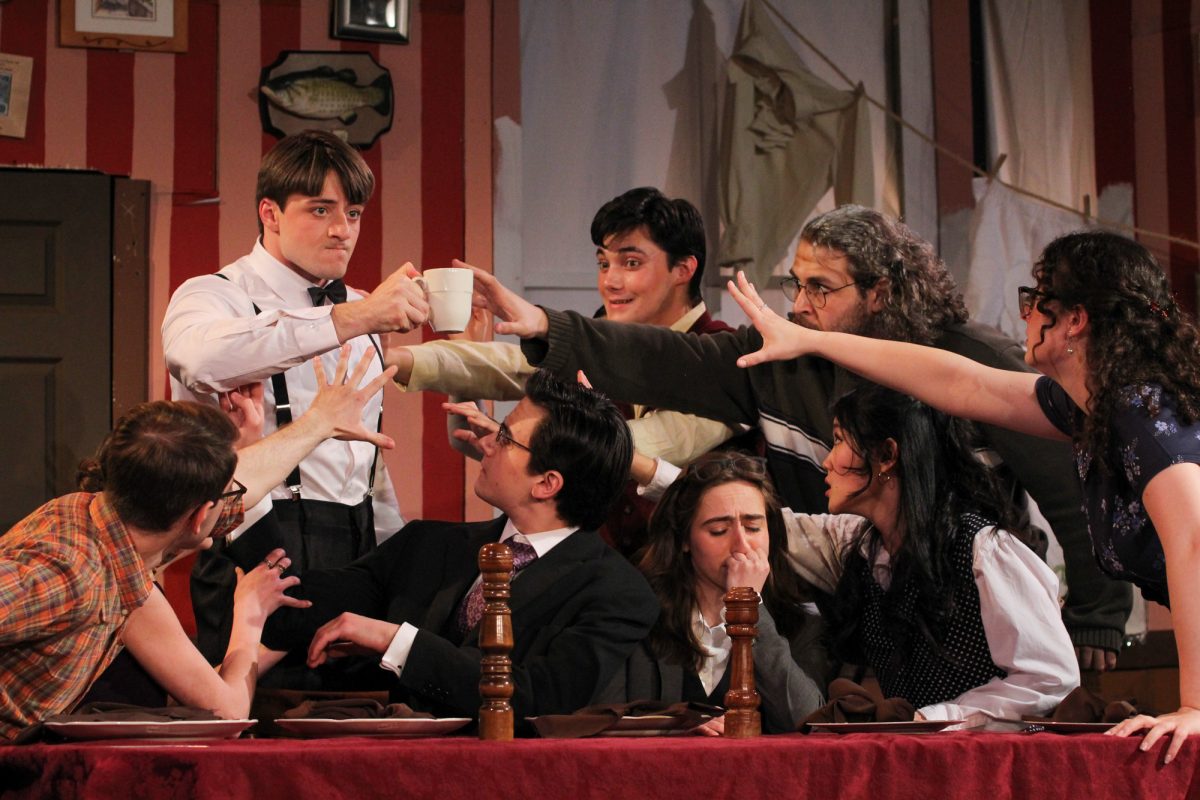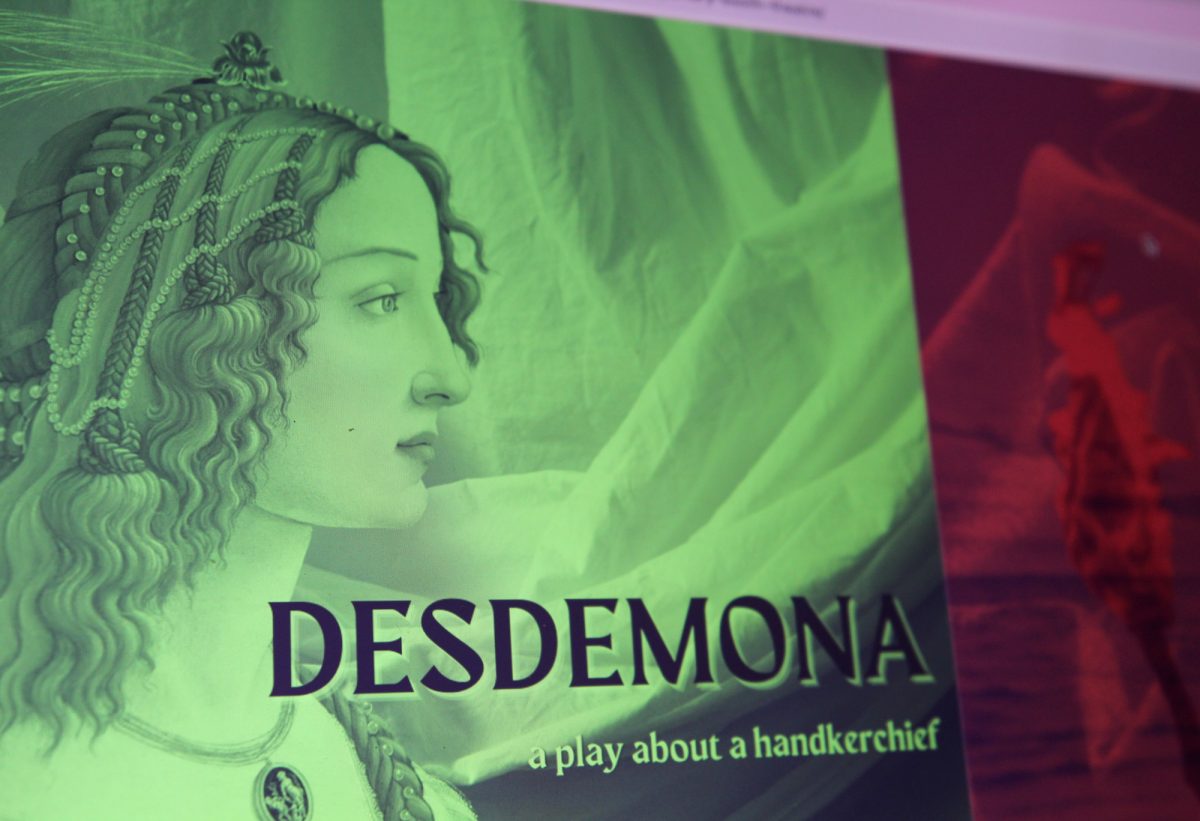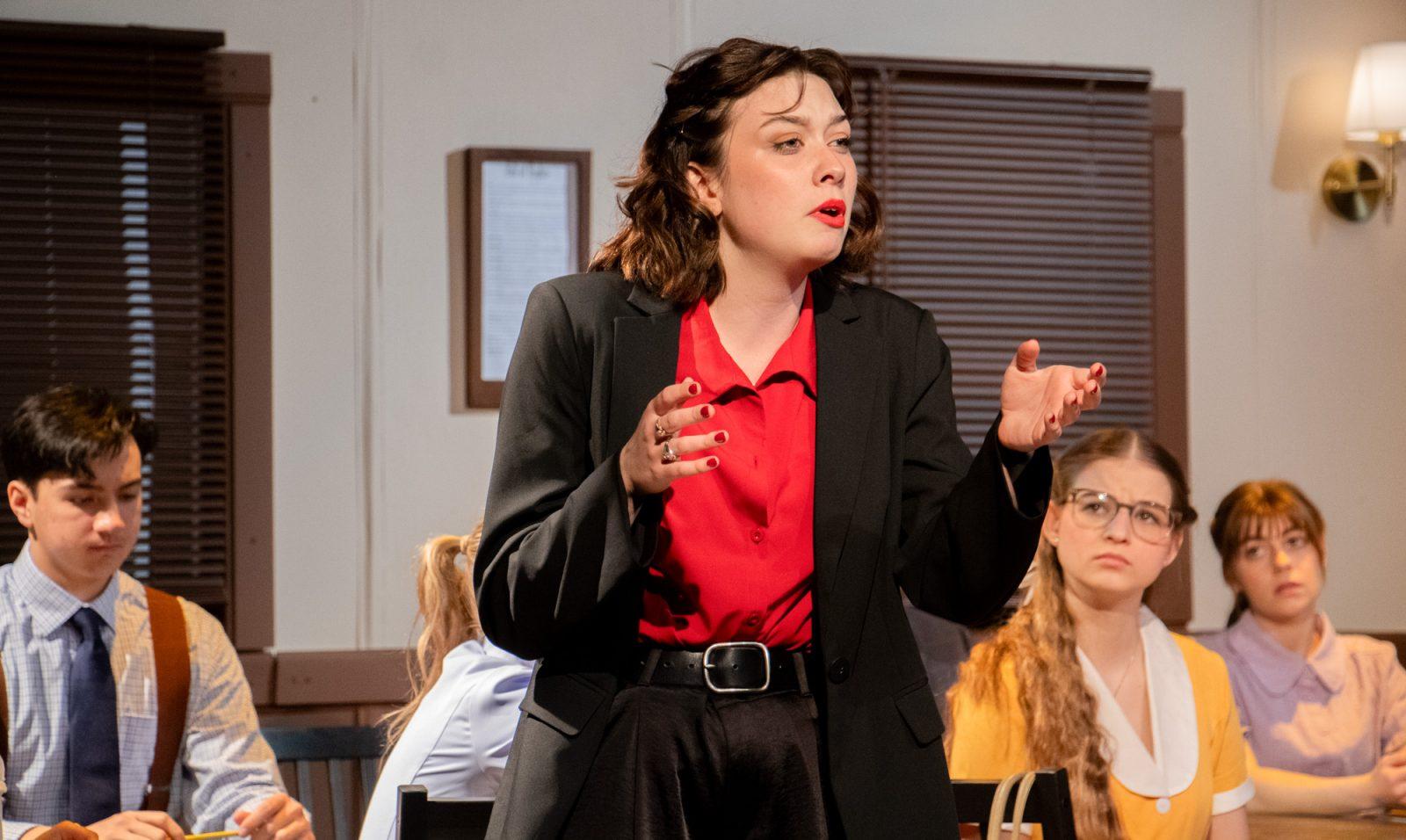Award-winning New York playwright Ain Gordon workshopped a new play on Feb. 5 with a number of BU graduate students at Boston University College of Fine Arts.

The monologue-driven play focuses on the 1980’s AIDS crisis and relies on the emotional recounts of three central figures: a nurse, a single man and a chorist. The play aims to uncover and memorialize these hidden heroes during a time when underground activism reigned.
The performances were shortly followed by a talk-back between Gordon, the audience and the cast. During the first conversation, Gordon described his choice to spotlight nurses in his story. He explained, “I’m never interested in the star of the show,” instead being drawn to “the person to the side of the picture, standing behind them.”
The playwright went on to describe his aesthetic as “three quarters naturalism and one quarter performance.” However pompous this proclamation was, I gave the writer the benefit of the doubt, especially after he revealed that he interviewed over 25 nurses in order to better create the script.
But upon my inquiry regarding a part of the play in which the nurse eloquently surmises the patient’s experience, the opposite was confirmed. I asked if this scene, seemingly raw and passionately detailed, was based on a first-hand account provided in one of the “transformative” interviews Gordon conducted. The writer replied in deadpan clarity, “no.”
More than anything, I found the performance to be the most memorable and touching dimension of the entire workshop. There were places in which the script seemed to drag over storylines — almost as if it was catching up to itself — but the embodiment of the characters by its actors made up for any lost distance.
The play was double-casted between various actors, all triumphant in their pacing with personable impressions left by Janelle Grace and Mishka Yaravoy. Gordon said he chose to double-cast to increase student contact.
Clearly, this play and the topic itself weighed heavily on some viewers. I noticed multiple seniors in the crowd wiping away tears during the closing monologue. Of the younger attendees, I’m not sure if the same affliction was shared.
The play does find some youthful connection in its comedically replayed phrase that “words matter”— a sentiment held close in the hearts of Gen Z. Still, the script fails to pull the young viewer into the fear and heartache felt by these past residents. It almost assumes you had been there and you yourself had seen the city crack beneath your feet.
Understandably, the younger spectators likely analyzed this past event through the eyes of COVID-19. In fact, much like COVID-19 today, the AIDS crisis was also downplayed, even being classified as an epidemic rather than a pandemic.
The play, however, skims over what real panic, both internal and external, had ensued by the lack of information available at this time. That being said, Gordon’s extensive research revealed the scientific reasoning behind the labeling of AIDS as an epidemic. Despite these discrepancies in public health knowledge, the play still acknowledges the inhumanity of medical professionals during this time which continues to be a contemporary issue.
In our conversation, Gordon brought up an age-old saying by George Santayana, “Those who cannot remember the past are condemned to repeat it.” The stigmatization and demonization of homosexuality aided in the dismissal and mishandling of a public health crisis. This discrimination of the LGBTQ+ community, especially in healthcare, is not just a thing of the past.
Various actions by the Trump administration to undermine vital LGBTQ+ rights and protections put the health and lives of many in jeopardy. Today, obtaining a Russian visa requires proof of being HIV-negative, a law that has been in place since 1995. Even further, the U.S. “Deploy or Get Out” policy from 2018 supports discrimination against HIV-positive service members.
Given that much of the issues his play confronts still exist today, Gordon rightfully leans into dismissing the widespread notion that time heals. The first case of AIDS in Philadelphia was documented in September 1981. There is still no cure.
All in all, Gordon’s play accomplishes its main goal of providing commemoration to the unthanked heroes of the past. Recent instances of injustice only reinforce the importance of understanding the past in its full context. Gordon’s play aims to provide this understanding, despite being lacking in its universal outreach.
One of the actresses described the process of learning the truth about AIDS through this project as “sobering and enraging and saddening and heartbreaking.” Maybe the truth is enough and I’m just cynical. Regardless, I am hopeful stories like these — simply based in truth — provide enough fuel to keep the flame burning for future generations of queer activists to come.
The play is set to premiere in spring of this year in sunny Philadelphia.





























































































































